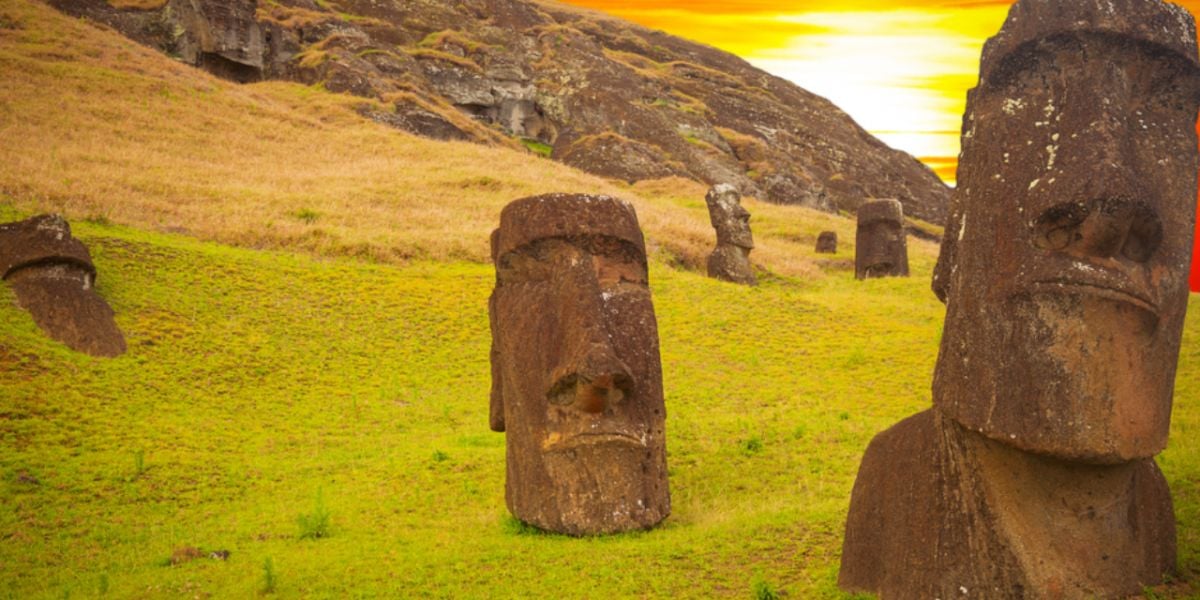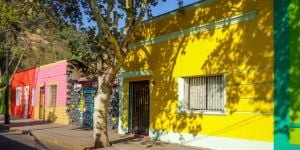
Chile's culture and traditions stem from its fairly homogeneous population of indigenous people, mainly the Mapuche, and the Spanish settlers of the colonial period. Chile's geographical location between the Andes Mountains and the Pacific Ocean also tends to isolate Chile from outside influences.
Chilean cowboys
In central Chile, there is a great culture and tradition stemming from the huasos, which are similar to cowboys. They are skilled horsemen who wear the traditional hat called a chupalla, and a poncho called a manta. Their folk music and dances are central to Chilean folk culture and can be found throughout the country, especially around festival days like the Fiestas Patrias.
Fiestas Patrias
The Fiestas Patrias are two days celebrated on September 18 - also known as Dieciocho and is the Chilean Independence Day- and September 19 which is the day to commemorate the Glories of the Army. These two days usually end up to be a week-long celebration, including rodeo games (the official Chilean sport), military parades, civil parades of schools, lots of cueca dancing in traditional costumes, and outdoor grilling called asados. Many locals set up a large tent called fonda to eat traditional foods like empanadas and alfajores, a cookie slathered with manjar (caramel) and drink traditional beverages such as pisco ( a Chilean brandy) and chicha (fermented grape juice or cider).
Most towns and cities set up fondas as well. Some may charge an entrance, but they are filled with traditional games, dancing, and culture.
Futbol
Futbol, or soccer in English, is the most popular sport in Chile because it is one that can be played by everyone: rich and poor, city dwellers or country folks. Whether it is played on simple dirt fields or in a well-maintained professional stadium, it is clearly one of the nation's favourite pastimes.
The largest stadium in Chile is the National Stadium of Chile. Located in Santiago, it has an official capacity of 48,665 people. It is part of a 62-hectare sporting complex which also features tennis courts, an aquatics centre, a modern gymnasium, a velodrome, a BMX circuit, and an athletic track which was updated and modernised in 2009. The Chilean national football team represents Chile in all major football competitions. The team is controlled by the Federación de Fútbol de Chile which was established in 1895. Chile won the Copa América in 2015 and 2016.
Chilean poets
Chile has many artists, poets, and writers. Two of the most famous, Nobel prize-winning poets were Pablo Neruda and Gabriela Mistral. Gabriela was an educator and writer who was the first Latin American woman to win the Nobel Prize for Literature in 1945. Pablo Neruda was a poet, diplomat, and politician who died in 1973. He owned three homes which are now all museums. His legacy continues to reach more people globally as many of his works have been translated into English.
Mapuche
The Mapuche, the indigenous people of southern Chile, have a significant influence on the culture and traditions of Chile. The language of the Mapuche, Mapudungun, is taught in many schools along with the history and traditions of these people. Many of the handicrafts of the Mapuche people are found throughout Chile, including textiles and pottery. The Mapuche have also contributed a wealth of knowledge about medicine from the local flora. Only 5% of the Chilean population is Mapuche but many more, as much as 40-60% according to some studies, identify as having some indigenous heritage.
Useful links:
We do our best to provide accurate and up to date information. However, if you have noticed any inaccuracies in this article, please let us know in the comments section below.








